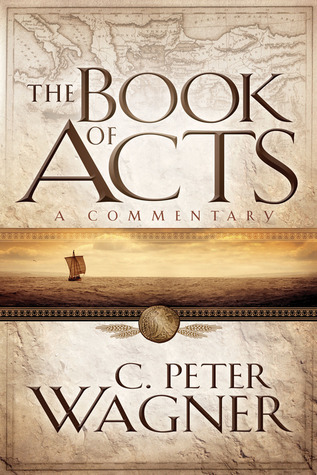TL;DR
C. Peter Wagner's 'The Book of Acts: A Commentary' explores the transformative power of the Holy Spirit in the early church as recounted in the Book of Acts, offering insights for modern Christians seeking to engage actively in their faith communities.
What is The Book of Acts about
In 'The Book of Acts: A Commentary', C. Peter Wagner delves into the narrative of the early church as described in the Book of Acts. This work emphasizes the importance of the Holy Spirit's empowerment, showcasing pivotal moments like Pentecost and the spread of the Gospel beyond Jewish boundaries. Wagner interprets Acts as a divine training manual designed to inspire contemporary Christians to participate actively in God's mission. By examining key figures such as Paul and the challenges faced by early Christians, the commentary serves as both a historical account and a practical guide for modern believers eager to extend their influence in their churches and communities.
The Book of Acts 8 Key Takeaways
Empowerment of the Holy Spirit
The Book of Acts highlights the crucial role of the Holy Spirit in empowering believers, a theme that resonates throughout the narrative and is vital for effective ministry.
Growth of the Early Church
Wagner details the rapid expansion of the early church, emphasizing how community-based outreach and shared faith contributed to its growth.
Conversion of Paul
Paul's dramatic conversion is pivotal, illustrating the transformative power of faith and setting the stage for his missionary journeys.
Spread of the Gospel to Gentiles
Acts chronicles the significant shift as the Gospel reaches non-Jewish audiences, emphasizing inclusivity in God's kingdom.
Persecution of Early Christians
The commentary discusses the various challenges early Christians faced, highlighting their resilience and commitment to their faith amidst persecution.
Encouragement and Generosity
Wagner draws lessons from the early believers, advocating for encouragement and generosity as vital components of Christian community.
Missionary Strategies
The book outlines effective strategies for evangelism and community building based on the practices of the apostles.
Intimacy with the Spirit
Readers are encouraged to cultivate a deeper relationship with the Holy Spirit, leading to greater joy and effectiveness in their spiritual lives.
The Book of Acts Videos
Book of Acts Summary: A Complete Animated Overview (Part 1)
Top The Book of Acts Quotes
- 'The Holy Spirit is the divine agent of transformation in the life of the church.'
- 'Acts serves as a powerful reminder of the church's mission to embrace all nations under the reign of Christ.'
Who should read The Book of Acts?
This commentary is ideal for pastors, theologians, and laypersons seeking to deepen their understanding of the Book of Acts. It offers practical insights for applying biblical principles in contemporary church settings and inspires readers to actively engage in their faith communities.
The Book of Acts Best Reviews
- 'Wagner provides a thorough and insightful commentary that resonates with both scholars and laypersons, making the Book of Acts accessible and relevant.' - The Christian Review
- 'A must-read for anyone interested in the dynamics of the early church and its application to modern Christian life.' - Church History Journal
People also liked these summaries
The Book of Acts FAQs
Who wrote the Book of Acts?
The Book of Acts is traditionally attributed to St. Luke the Evangelist, who also authored the Gospel of Luke. It was likely written between 70 and 90 CE.
What are the key themes in the Book of Acts?
Key themes include the empowerment of the Holy Spirit, the growth of the early church, the conversion of Paul, and the spread of the Gospel to the Gentiles.
What can modern Christians learn from the Book of Acts?
Modern Christians can derive lessons on community, encouragement, and resilience in the face of challenges, as well as the importance of spreading the Gospel actively.
